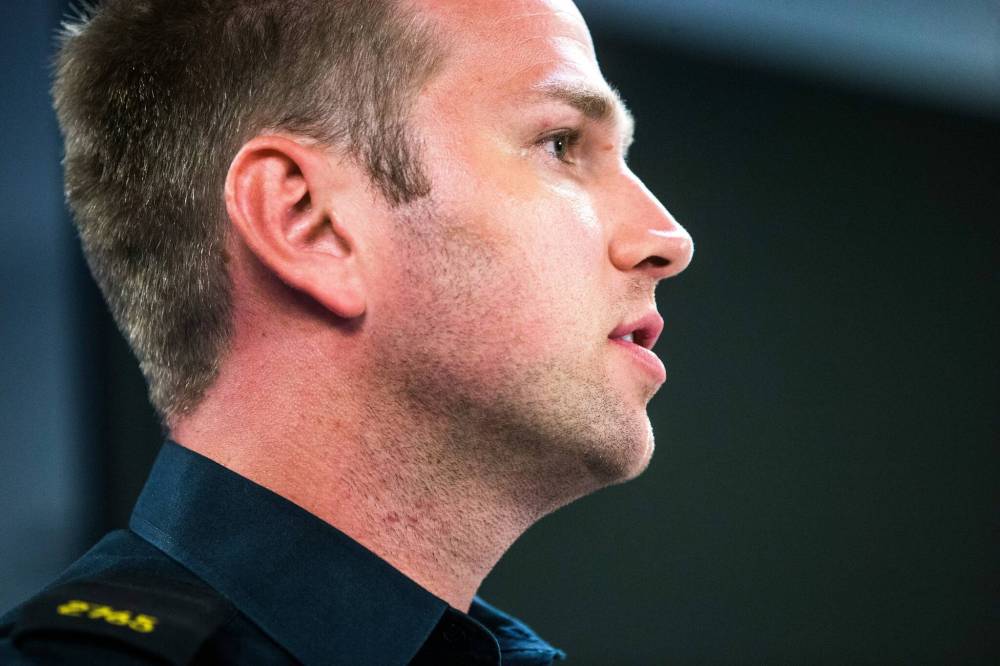Winnipeggers cheated out of $100K in ‘grandparent’ scams
Advertisement
Read this article for free:
or
Already have an account? Log in here »
To continue reading, please subscribe:
Monthly Digital Subscription
$1 per week for 24 weeks*
- Enjoy unlimited reading on winnipegfreepress.com
- Read the E-Edition, our digital replica newspaper
- Access News Break, our award-winning app
- Play interactive puzzles
*Billed as $4 plus GST every four weeks. Offer only available to new and qualified returning subscribers. Cancel any time.
Read unlimited articles for free today:
or
Already have an account? Log in here »
Hey there, time traveller!
This article was published 28/07/2022 (917 days ago), so information in it may no longer be current.
Winnipeg police are warning the public to be vigilant after an ugly string of “grandparent” scams.
Police spokesman Const. Jay Murray said they’ve received 15 reports of the scam over the past six days, with an estimated $100,000 stolen.
The fraud typically involves someone calling an elderly person and claiming to be a grandchild or niece or nephew who is in serious legal trouble and needs money immediately, before sending someone to collect it in person, Murray said Thursday.

MIKAELA MACKENZIE / FREE PRESS FILES
Police spokesman Const. Jay Murray said they’ve received 15 reports of the scam over the past six days, with an estimated $100,000 stolen.
Often, he said, the fraudsters claim the cash is needed for bail money and there’s a so-called gag order on the case, so the victim can’t discuss the matter with anyone, including the bank. Other examples include the criminals claiming to have been in a car accident, or needing cash to leave a foreign country.
The scammers are co-ordinated, Murray said, and police forces across North America have reported an increase in this type of crime.
“We believe that these frauds are being committed by organized groups. They’re not fly-by-night operations,” he said.
Murray said it’s unclear whether the criminal groups are operating from solely within Winnipeg or from elsewhere.
“The speculation is that perhaps they may travel. We’ve seen that in the past with other types of scams, where groups will travel from city to city,” he said.
“I don’t think we can rule out that there’s likely a local component to this as well.”
In March, Murray noted investigators had discovered that couriers or rideshare drivers were involved by collecting the cash, instead of relying on online transfers.
He said that’s likely due to increased awareness of other types of scams, such as those involving pre-paid gift cards, and as a means of avoiding digital detection.
“The catch of that is there’s increased opportunity for us to collect evidence now — a lot of people have video surveillance (at their home),” he said.
He said it’s unclear whether the courier companies or rideshare drivers are in on the crime.
“We think there’s probably a level of culpability, if you’re attending somebody’s house to pick up a large amount of money,” Murray said.
“If you’re a rideshare driver or you’re a courier company and you get that request to go pick up some money from somebody — I think it might be worth asking some questions to protect yourself from liability.”
The department’s financial crime unit is currently investigating, Murray said, but he would not reveal if police have made any arrests in this new rash of cases.
Murray said police believe there may be more victims and he implored anyone who was contacted by scammers to report it.
“I think it can be incredibly embarrassing to somebody, if they lose money and find out it’s a scam, but the reality is a lot of people fall for scams or frauds every day, unfortunately. There’s nothing to be embarrassed about,” he said, adding it’s important to document as much evidence as one can.
“The more often they commit the scam, the more often we can collect evidence, the better opportunity we have to identify these individuals and take them into custody.”
Murray noted police and the courts never send people to private homes to collect cash or tell people to lie to their bank representatives.
He also warned potential victims to speak to a trusted person before giving money or personal information to callers, and for the public to talk to their elderly loved ones about the fraud.
erik.pindera@freepress.mb.ca
Twitter: @erik_pindera

Erik Pindera
Reporter
Erik Pindera reports for the city desk, with a particular focus on crime and justice.
Our newsroom depends on a growing audience of readers to power our journalism. If you are not a paid reader, please consider becoming a subscriber.
Our newsroom depends on its audience of readers to power our journalism. Thank you for your support.


